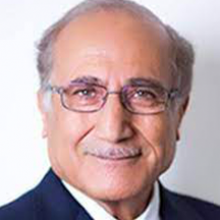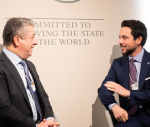You are here
Democratic security
Nov 12,2018 - Last updated at Nov 12,2018
In a group meeting, HRH Prince Hassan came up with the term “democratic security”. In a brainstorming tour de force on the future of Jordan, Prince Hassan referred to comprehensive security, basic needs security, human security and the novel term “democratic security”.
In response, I decided to research if this term had been used before, what exactly its definition is and whether it is a viable concept. To my dismay, the term focused on security much more than the concept of democracy. The word “democratic” refers to the shared responsibility between government and citizens to combat sources of insecurity, whether gang violence, terrorist groups or insurgent fifth columnists.
The term was used euphemistically by former Columbian president Alvaro Uribe, who used the term as a domestic security policy title to combat the Revolutionary Armed Forces of Colombia (FARC) and drug cartels. In many cases, both were in collusion or in actual collaboration.
The objective of Uribe’s policy was to consolidate the government’s grip all over Colombia to control militia and cartel sanctuaries, to protect the population, to destroy illegal drug trade and, most importantly, to transparently and efficiently manage resources as a measure to reform and improve the performance of government.
To achieve such objectives, the tools were to “engage the civilian population actively, support soldiers, increase intelligence capacity, demobilise illegal groups, integrate armed forces and increase defence spending”.
The policy succeeded in the first two years in curbing crimes, kidnappings and terrorist attacks by 50 per cent. Moreover, recruitment of soldiers became much easier, and the number or recruits increased by 60 per cent in 2003. Eventually, drug trade had been weakened, and a parliament-approved deal with FARC was signed in August 2016, thus ending 52 years of war.
Of course, democratic security in Jordan will have to focus on Jordan’s demons or Gordian knots, such as abuse of government property, tax evasion, corruption in the public and private sectors, lethargy and abstention from taking decisions, etc. We should choose one or two interrelated battles, mobilise public opinion, allocate the needed resources, transparently and effectively engage people in the responsibility and defend the dignity of our police and security personnel, as well as corruption resistant institutions.
Winning this battle will go a long way in fostering democracy. It will help stop further detrition of anti-establishment behaviour. If we succeed in realising the objective of such a consented campaign, the bygone and long-scorned prestige of public figures and institutions will be restored.













